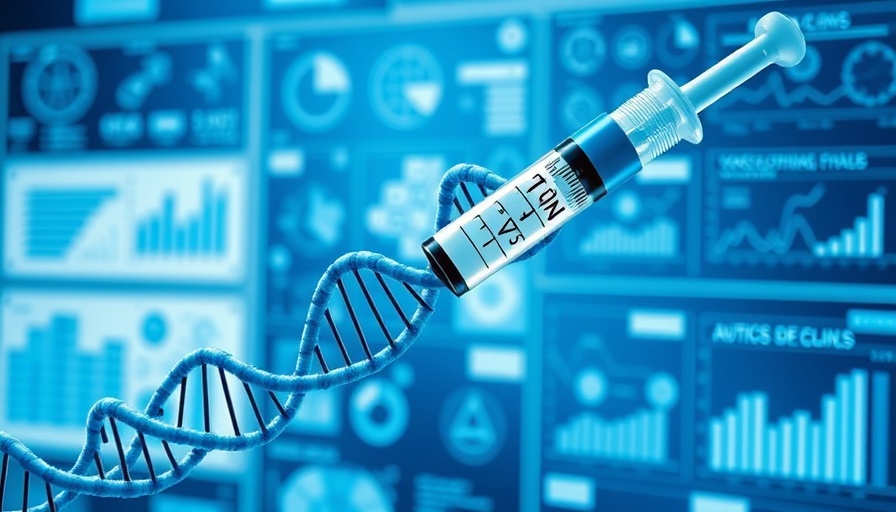
The CDC's New Study: A Controversial Decision or a Misguided Quest for Answers?
The Centers for Disease Control and Prevention (CDC) is set to conduct a new study examining the long-debunked theory that childhood vaccinations may be linked to autism. This announcement, coming from the health agency now headed by Health and Human Services Secretary Robert F. Kennedy Jr., has reignited a heated debate within the scientific community, where the consensus overwhelmingly supports the safety of vaccines.
Understanding the Vaccine-Autism Myth
For over two decades, extensive research has shown no substantiable link between vaccines and autism. The modern surge in autism diagnoses can largely be attributed to improvements in diagnostic techniques and a broader definition of the disorder, rather than any connection to vaccination rates. Notably, the CDC's own statistics reflect how diagnoses have risen alongside no significant changes in vaccination patterns. The previously quoted claim that autism rates soared from 1 in 10,000 in 2000 to 1 in 36 today echoes earlier misinterpretations of datasets.
Public Health Implications Amidst Controversy
Recent outbreaks, such as the measles epidemic in Texas, underscore the risks associated with vaccine hesitancy. Health professionals universally advocate for vaccinations, which are crucial in maintaining herd immunity and preventing the resurgence of diseases that were once under control. As experts articulate, it is not just individual health at stake but community safety, especially for those who cannot receive vaccinations due to medical conditions.
The Science Behind Autism: Dissecting the Factors
While genetics plays a significant role in autism's emergence, experts caution against oversimplifying the issue. Potential environmental triggers and demographic factors—such as advanced parental age—also play a notable part in autism spectrum disorder (ASD). The ongoing misconceptions linking vaccines to autism could divert attention from these critical factors, thereby undermining public understanding of the complex origins of autism.
Counterarguments: The Call for Clarity and Responsibility
Senator Bill Cassidy, a practicing physician and the chairman of the Senate Health Committee, has criticized the CDC's decision as a waste of resources. He advocates for a focus on research that might provide insights into the actual reasons behind autism's rising rates. Both the scientific community and parents advocating for public health wisely stress that positing vaccines as a potential culprit does a disservice to ongoing efforts to understand the true causes of ASD.
Industry Commentary: Experts Weigh in on the CDC’s Study
Medical professionals, while supportive of new research, express concern regarding the message the study conveys. Dr. Danelle Fisher, a pediatrician, highlights the importance of early vaccination in mitigating not just childhood disease outbreaks but also the ongoing fear that myths surrounding vaccines continue to propagate within our communities. By re-examining groundless claims, the CDC can amplify vaccine hesitancy at a time when pro-vaccine messaging is crucial.
A Future Without Vaccine Myths: What Lies Ahead?
As the CDC undertakes its study, its ultimate impact on public perception and policy remains uncertain. Vaccine advocates urge that the re-emergence of studies questioning the safety of vaccines could hinder progress made over years of research affirming vaccine efficacy. The true challenge lies in shifting conversations back to proven public health measures that protect our children, and society at large, in an era where misinformation often clouds critical health discussions.
The CDC’s plan to revisit such a contentious topic could further polarize opinions on vaccination, particularly during a time marked by public health challenges. As this study proceeds, it is vital for public health communications to maintain transparency and reaffirm the scientific consensus advocating for the immunization of our children against preventable diseases.
In light of these developments, consider how you can contribute to community awareness about vaccine safety. Share accurate information, participate in discussions, and support your local health initiatives to ensure the health and wellbeing of those around you.
 Add Element
Add Element  Add Row
Add Row 



 Add Row
Add Row  Add
Add 


Write A Comment